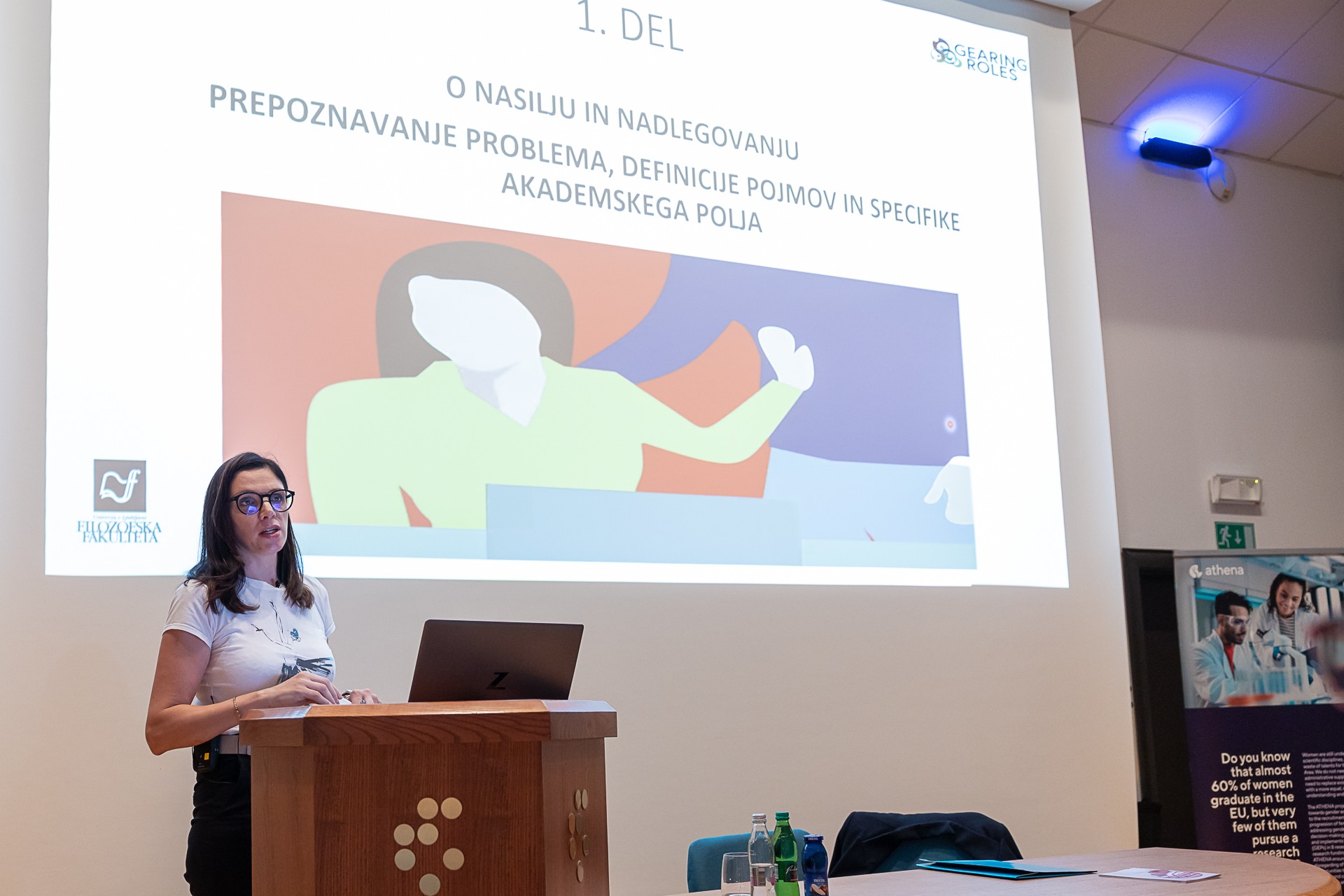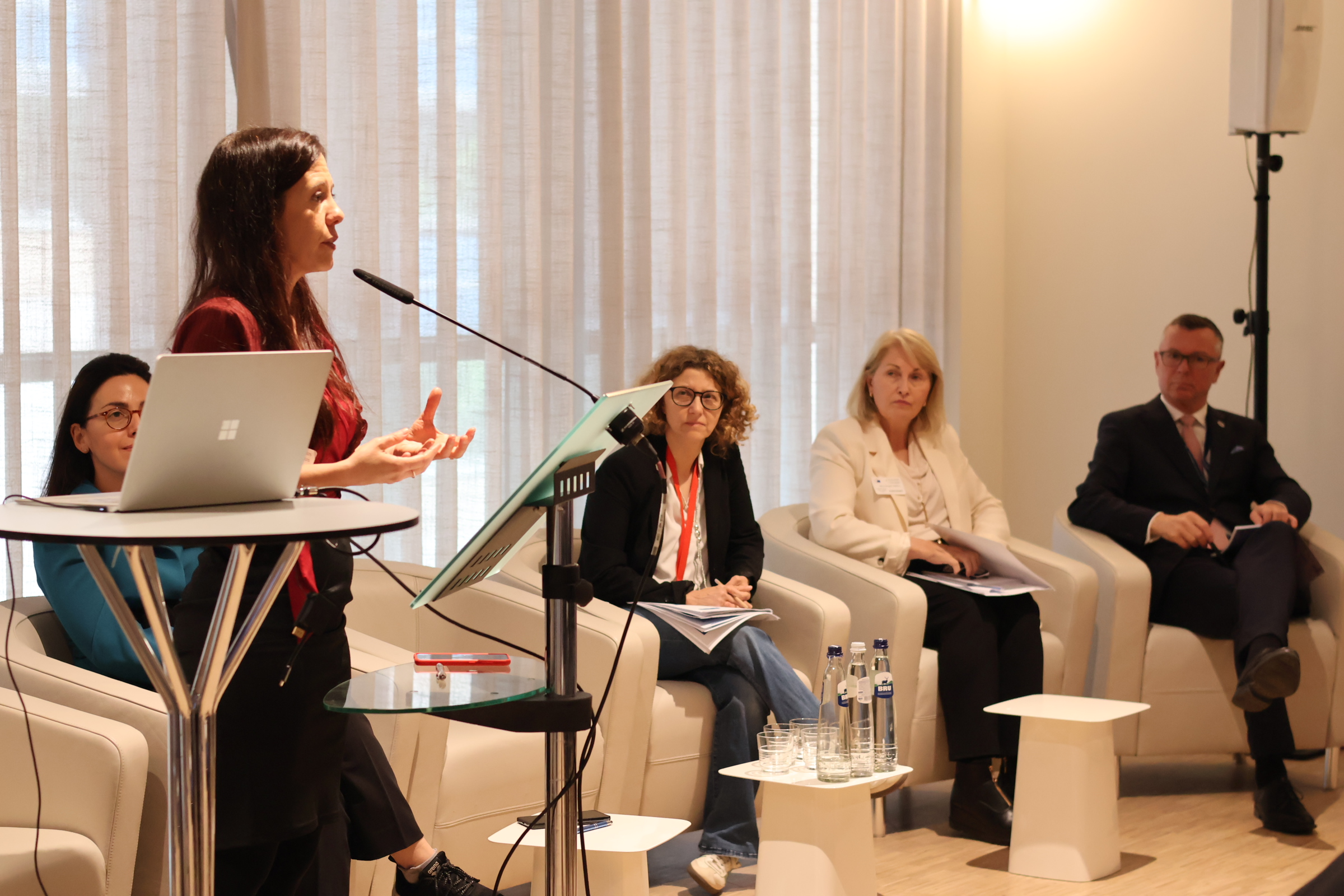
JSI’s Workshop on the Prevention of Gender-based Violence
In line with the recommended content-related requirements of the European Commission, prevention of gender-based violence is one of the five pillars of measures under the Gender Equality Plan for the Jožef Stefan Institute (JSI). On 12th June 2023, the Institute hosted a workshop on the prevention and response to all forms of gender-based violence, delivered by Doc. Dr. Jasna Podreka from the Department of Sociology at the Faculty of Arts, University of Ljubljana. Participants discussed forms of sexual and other forms of violence, harassment and mobbing, and how to respond when witnessing or experiencing inappropriate behaviour. The speaker presented systemic options for addressing and protecting people from harassment and violence, the legislative framework and the institute of trusted persons.
The workshop was implemented in the framework of the project ATHENA, which is committed to strive towards gender equality, mitigating barriers to the recruitment, retention, and career progression of female researchers, and addressing gender imbalances in decision-making processes. ATHENA delivers and implements Gender Equality Plans (GEPs) in 8 research performing (RPOs) and research funding organizations (RFOs). ATHENA ensures that all people, disregarding their gender, will have the opportunities to express their potential in research and contribute to an innovative, competitive and thriving Europe society.
About Gender-based violence
Gender-based violence is violence directed against a person because of that person’s gender, gender identity or gender expression, or violence that disproportionately affects persons of a particular gender. It may cause physical, sexual, emotional or psychological harm or economic loss to the person experiencing violence. Gender-based violence in all its forms, including sexual harassment, has a number of harmful consequences in research institutions and academic settings and has a negative impact on the quality of research and teaching.




![[PRESS RELEASE] ATHENA Hosts High-Level Discussions on Gender Equality in European Research](https://www.athenaequality.eu/wp-content/uploads/2025/03/PRESS-RELEASE-1.jpg)












